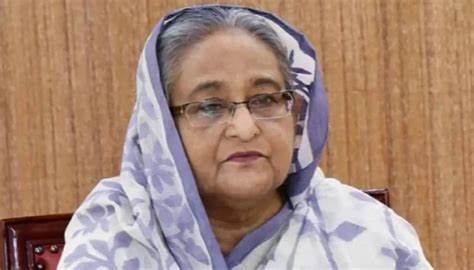Will Sheikh Hasina get political asylum in Western countries?
8 August 2024
It is not yet clear where Sheikh Hasina's final destination will be after leaving power and fleeing Bangladesh. Indian External Affairs Minister S Jaishankar made it clear that India is not the last destination for Sheikh Hasina.
 |
| Sheikh Hasina |
Mr. Jaishankar said that Sheikh Hasina sought permission to come to India 'temporarily' at very short notice.
Sheikh Hasina's son Sajib Wazed Joy said that his mother did not seek political asylum anywhere.
So where will Sheikh Hasina's destination be?
Western Countries' Perspective on Sheikh Hasina and the Possibility of Political Asylum
Western countries have historically played a significant role in shaping the political landscape of South Asia, including Bangladesh. Their views on Sheikh Hasina's leadership, and the broader implications of her possibly seeking political asylum, are crucial to understanding the dynamics of international diplomacy and Bangladesh’s future.
 |
| Sheikh Hasina |
Human Rights Concerns and Democratic Values
Western nations, particularly the United States, the United Kingdom, and members of the European Union, have long championed the causes of human rights, democracy, and the rule of law. These values are often at the forefront of their foreign policy decisions, influencing their relationships with countries around the world.
Sheikh Hasina's government has been criticized by various international human rights organizations and Western governments for its handling of political dissent and press freedoms. Allegations of extrajudicial killings enforced disappearances, and the suppression of opposition voices have raised serious concerns. The Western media and government officials have repeatedly urged Bangladesh to uphold democratic norms, respect human rights, and ensure free and fair elections.
Given these concerns, the idea of granting political asylum to Sheikh Hasina might be met with hesitation. Western countries could view such a move as contradictory to their public stance on promoting democracy and human rights. Offering asylum to a leader accused of authoritarian practices might provoke criticism from human rights groups and undermine the credibility of these nations on the global stage.
 |
| Quota Reform Agitated Mess |
Strategic Interests and Diplomatic Relations
Despite concerns over human rights, Western countries also weigh their strategic interests when dealing with Bangladesh. The country’s geopolitical location, economic potential, and role in regional stability are significant factors. Bangladesh is a key player in South Asia, with strong economic growth, a large population, and a strategic position bordering India, Myanmar, and the Bay of Bengal.
The United States and European Union, in particular, have economic and security interests in Bangladesh. They have invested in various development projects, trade partnerships, and counterterrorism efforts. As such, Western governments might prefer to maintain stable diplomatic relations with Bangladesh rather than risk a deterioration by openly opposing Sheikh Hasina’s government.
However, if the situation in Bangladesh were to escalate—leading to a significant breakdown in law and order or a major political crisis—Western countries might reconsider their stance. They could offer asylum as part of a broader diplomatic effort to manage the crisis, ensure regional stability, and prevent a humanitarian disaster.
 |
| A Statue of Skeikh Hasina |
Precedents and Potential Repercussions
Western countries have granted asylum to political figures in the past, but such decisions are often contentious and carry significant diplomatic repercussions. For instance, offering asylum to Sheikh Hasina could strain relations with Bangladesh and potentially destabilize the region.
Moreover, granting asylum to a sitting or recently deposed head of government could set a precedent that Western countries might want to avoid. It could be perceived as interference in the domestic affairs of sovereign nations and might lead to backlash from other countries with similar internal challenges.
A Cautious and Calculated Approach
Western countries are likely to approach the issue of political asylum for Sheikh Hasina with caution. While they remain critical of her government’s human rights record, their decision would likely be influenced by a complex mix of ethical considerations, strategic interests, and diplomatic calculations.
The most probable scenario is that Western nations will continue to press for democratic reforms in Bangladesh through diplomatic channels while avoiding direct confrontation. Asylum might only become a viable option in the face of a severe crisis where regional stability is at risk, and the safety of Sheikh Hasina is in jeopardy.
 |
Sheikh Hasina
|
For now, Western governments are likely to watch the developments in Bangladesh closely, balancing their criticism with the need to maintain constructive engagement with a strategically important partner in South Asia.




































